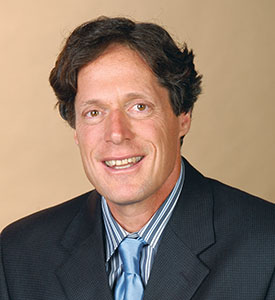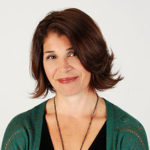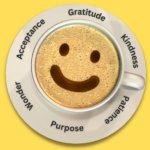 Dr. Frederic Luskin is director of the Stanford Forgiveness Project of Palo Alto, California, the largest interpersonal forgiveness training research project ever conducted. The Project has successfully explored forgiveness therapy with people who suffered from the violence in Northern Ireland, Sierra Leone as well as the attacks on the World Trade Center on 9/11. Dr. Luskin’s research has shown that forgiveness reduces anger, hurt, depression, and stress and leads to greater feelings of optimism, hope, compassion and self-confidence.
Dr. Frederic Luskin is director of the Stanford Forgiveness Project of Palo Alto, California, the largest interpersonal forgiveness training research project ever conducted. The Project has successfully explored forgiveness therapy with people who suffered from the violence in Northern Ireland, Sierra Leone as well as the attacks on the World Trade Center on 9/11. Dr. Luskin’s research has shown that forgiveness reduces anger, hurt, depression, and stress and leads to greater feelings of optimism, hope, compassion and self-confidence.
Dr. Luskin holds a Ph.D. in Counseling and Health Psychology from Stanford University. He serves as a Senior Consultant in Health Promotion at Stanford University and is an Associate Professor at the Institute of Transpersonal Psychology. He is author of the books, Forgive for Good: A Proven Prescription for Health and Happiness and Forgive for Love: The Missing Ingredient for a Healthy and Lasting Relationship.
Stacey: What is forgiveness and what is it not?
Dr. Luskin: The dictionary definition says forgiveness is giving up any thought of revenge or harm even when it might be justified. My own definition of forgiveness is that it’s learning to make peace when you didn’t get something that you wanted in life. Another definition, which we use to teach people, is that there are other ways of dealing with life when it turns out different than you wanted than staying bitter. Those are the two that I work with.
Also, forgiveness is not reconciliation. You don’t have to rejoin a relationship. It’s not the same as justice. For example, you can sue your ex-husband for child support, but you don’t have to hate him. It also doesn’t mean that you condone what somebody did because forgiveness means you don’t think they did something right, you just don’t have to have a hostile reaction to it.
Stacey: What makes forgiving someone who has wronged us so hard for so many?
Dr. Luskin: Part of it is cultural. We live in a world where most people hold onto their grudges so that becomes normal. Another part of it is that very rarely have people been taught how to forgive. The third one is that biologically we have a negativity bias. Our mind tends to dwell more on things that are wrong than are right. But these three things don’t fully answer the question to me, but are hints as to why.
Stacey: In your book, Forgive for Good, you say that forgiveness is rarely discussed and less often practiced as a response to hurt, what do you think is the reason for that?
Dr. Luskin: Very rarely do friends call each other up and say, “Hey, I hope you’ve dealt with your parents by forgiving them,” or “I hope when your husband made that mistake, you were kind to him.” You don’t get that kind of communication as much as, “I hope you told the jerk off.” Most of the time we are so busy helping each other be right and better than other people that we forget there are alternatives.
Stacey: What makes people so fixated on the person who wronged them that it’s as if it happened yesterday instead of years ago?
Dr. Luskin: There are a couple of reasons for this. One is that we talk about what happened to us a lot and so that tends to make it more present. If you bring up painful things, then you’re bringing them up, it’s not like anybody is doing this for you. Second, is biology. If you’ve been harmed, you want to make sure it doesn’t happen again, so you are vigilant, guarded, protected. Third, is our nervous system, which reacts to the stress caused by saying, “I hate my mother.” And when it does, it makes us feel bad, so we again blame our mother for something, so we’ve got to cut that cycle. Since most people don’t cut the cycle, they don’t grow out of that kind of blame and repetitive experience.
Stacey: You say, also in your book, that people rent out space in their minds to the hurt, or grievance as you call it, and that by understanding how a grievance is created, people emerge ready to heal and forgive. So how is a grievance created?
Dr. Luskin: A grievance is created when we take a normal life event that is painful, make it very personal as opposed to something that just happened, and then exaggerate how personal it is. Then we practice this pattern over and over, and forget that there are other ways of looking at the same situation. So let’s say that your parents abused you. You can say for 10 years that they were terrible and it was awful, or you can say it was really painful, and I wish that it didn’t happen, or you can say I feel sorry for my parents because they never had the ability to love their own children. You can change your grievance at any time but people don’t, so they over practice one way of looking at it, thinking that’s the only way and get stuck.
Stacey: Can people learn to forgive, and, if so, what does learning to forgive open up for people?
Dr. Luskin: Yes, that is what all of our research is about. We have taught people to forgive and then measured that it is helpful to them. When people learn to forgive they tend to have a very different take on some of the painful things in their life and that take is less hostile and more hopeful. They know that they might have been harmed, but they don’t feel like an endless victim of it, which is the biggest change. It’s not that they don’t think that it was bad or painful, it’s that they see a sense of hope because they’re not stuck in their negativity. We and other people have taught 1,000’s of people to forgive so it’s imminently possible.
Stacey: Is everything forgivable even the murder of a loved one?
Dr. Luskin: Yes, everything is forgivable because there are some people who have forgiven everything or anything. So in some sense the answer to this is, of course. And, in another sense, everything is not always forgivable for every person and that’s different. In a theoretical human sense, of course, people have forgiven the Holocaust. So people forgive the Holocaust like you can forgive your mother-in-law. Not everybody forgives everything that has happened to them.
We have worked with people who have had immediate family members murdered. We’ve worked with people who had family members killed in 9/11. I’ve known people who have forgiven about as bad as it gets. I know human beings are capable of it, and that is a conviction that I carry with me in all the work that I do.
Stacey: In the book, you talk about creating a story that shows us as a hero rather than a victim, what would that story look like? How does one become a hero rather than a victim?
Dr. Luskin: “Look at what life did to me and look how well I’ve coped with it.” This is a hero speaking as opposed to, “Look at what life did to me, and I’ll never recover.” I just met a woman who told me that her father had sexually molested her for her whole life until he died when she was 16. She felt like she never had a childhood without sexual and physical molestation. So that’s tough, right? Now she’s 38 years old, and she knows that, not only has she forgiven her father, she’s created a decent life for herself. She spends as much time talking about her decent life as anything that her father might have done to her. That’s terrific. So that’s the biggest thing that needs to change to forgive. After you have grieved to some degree, stop telling that woe is me story.
Stacey: Because then, like you say in the book, you’re giving your power away.
Dr. Luskin: That’s exactly it.
Stacey: And that’s pretty important.
Dr. Luskin: But it’s also so simple.
Stacey: What is the single most important benefit of forgiving someone?
Dr. Luskin: That people get a sense that even though life has been hard, they have some power within them to handle it. And that allows them to do all sorts of positive things, both physically and emotionally. So when people can’t forgive, they tend to become more hopeless in other ways. They feel less able to cope with life and more scared so they probably take a little less care of their health because what does it matter. They probably have less trust in people because they’re concerned that they won’t be able to deal with things. I would say the sense that people can deal with what life sends to them is probably the strongest thing that comes when they learn to forgive.
Stacey: What are some other benefits?
Dr. Luskin: Forgiving lowers blood pressure. It reduces the strain on your heart. It certainly reduces depression, anger and stress as well as makes people feel more hopeful.
Stacey: In your forgiveness training, what are some of the techniques/methods you use to teach forgiveness?
Dr. Luskin: We teach four different techniques. One is you have to change the story. You can’t just keep telling the same old woe is me story and expect to have any kind of decent life. Number two is that you have to learn how to manage your own stress from the experience so we teach stress management. The third is you have to learn to appreciate things in your life because you then have something to compare it to. You can complain about your mother all day long, but it doesn’t mean that much if you forget any of the other good things that have happened to you. So gratitude and being positive are very important. The last one is that you have to remind yourself, at some level, that just because you wanted a different life doesn’t mean you have to have gotten a different life, and the only life that you could ever be happy in is the one you actually have.
Stacey: What are some obstacles to forgiveness?
Dr. Luskin: A lack of gratitude because then you think that it’s only bad things that have happened to you so you don’t have a good perspective. Second is a lack of compassion because then you think that bad things have only happened to you, and you don’t really notice all sorts of other people who have been hurt too. Third, being narcissistic makes forgiveness a problem because then you’re just concerned about you and not concerned about anybody else, which makes forgiveness almost impossible. And, fourth, a lack of practice. You have to practice forgiveness. If you practice hating people, then that’s what you get better at. If you don’t practice forgiveness, it’s really hard to do it.
Stacey: What needs to first be in place before someone can forgive?
Dr. Luskin: They have to have done some grief work about their loss or wound. They have to have done some grieving of it, which means that they have felt the pain and acknowledged their loss. Also, that they’ve looked at how they handled things and said, “Could I have handled it better?” So a lot of inner exploration and again going through these stages of grief. Then when these stages have been explored, you can look at letting it go. So you can’t forgive too early before you’ve had a chance to grieve the loss. That’s the biggest obstacle that people run into.
Stacey: So to grieve, and really feel the pain, that has to be in place before someone can forgive?
Dr. Luskin: Think about it. How can you forgive if you haven’t gone through some of the suffering that shows you what it is that you’re dealing with and what really has happened and that you’ve felt the sadness and the loss? There’s a lot that goes on that you have to embrace before you can say, “Okay, I’m done with this,” and forgiveness says, “I’m done with it.”
Stacey: How can a person practice forgiveness daily?
Dr. Luskin: You forgive your kids and the people you care about as often as you can. So you forgive the people close to you. You forgive all the little things that go on in life like the traffic and rude sales clerks, all the nothings that we get angry about, which are a waste of our time. Then you practice the language of forgiveness. So let’s say that you are mad at someone legitimately. You practice saying the words of forgiveness when you’re not seeing that person so instead of making it worse, you’re practicing making it better until you’re actually ready to do it. These are the simplest ways that I can think of to practice forgiveness.
Stacey: This is really important because there are so many injustices that go on. If people don’t distinguish that they can practice forgiveness as a way of dealing with them, then it’s a vicious cycle.
Dr. Luskin: It’s a vicious cycle, and the real sadness is that if we practice being mad no matter how righteous we are, this becomes easier to do.
Stacey: What would you most like to communicate to people, to the world about forgiveness?
Dr. Luskin: That of all the ways that I have seen to deal with issues that come up in life, people who forgive when it’s hard appear to have the easiest futures. And the good news is that if you practice the nine steps of forgiveness that we put out, then you can learn to forgive. It’s not that complicated. It’s just something to learn. It’s like anything else you want to practice. With practice, you get better.
Stacey: You build that forgiveness muscle.
Dr. Luskin: That’s exactly right. You build that muscle.
Stacey: Thank you so much for the interview, Dr. Luskin.
For more information on Dr. Frederic Luskin, please visit his website, http://www.learningtoforgive.com/. Below are Dr. Luskin’s Nine Steps to Forgiveness.
Nine Steps to Forgiveness
by Frederic Luskin, Ph.D.
1. Know exactly how you feel about what happened and be able to articulate what about the situation is not OK. Then, tell a trusted couple of people about your experience.
2. Make a commitment to yourself to do what you have to do to feel better. Forgiveness is for you and not for anyone else.
3. Forgiveness does not necessarily mean reconciliation with the person that hurt you, or condoning of their action. What you are after is to find peace. Forgiveness can be defined as the “peace and understanding that come from blaming that which has hurt you less, taking the life experience less personally, and changing your grievance story.”
4. Get the right perspective on what is happening. Recognize that your primary distress is coming from the hurt feelings, thoughts and physical upset you are suffering now, not what offended you or hurt you two minutes – or ten years -ago. Forgiveness helps to heal those hurt feelings.
5. At the moment you feel upset practice a simple stress management technique to soothe your body’s flight or fight response.
6. Give up expecting things from other people, or your life, that they do not choose to give you. Recognize the “unenforceable rules” you have for your health or how you or other people must behave. Remind yourself that you can hope for health, love, peace and prosperity and work hard to get them.
7. Put your energy into looking for another way to get your positive goals met than through the experience that has hurt you. Instead of mentally replaying your hurt seek out new ways to get what you want.
8. Remember that a life well lived is your best revenge. Instead of focusing on your wounded feelings, and thereby giving the person who caused you pain power over you, learn to look for the love, beauty and kindness around you. Forgiveness is about personal power.
9. Amend your grievance story to remind you of the heroic choice to forgive.
Source of photo: Seja Feliz!






Leave a Reply